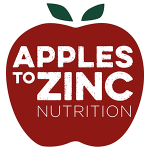This is an article on Nutrition and Fertility that I wrote for Infertility UK magazine. Enjoy!
—–
Starting a family isn’t always straightforward and, according to the latest NHS figures, around 1 in 6 couples have difficulty conceiving.
100 years ago large families were the norm and, with food budgets small, people ate a diet that was entirely unprocessed, largely organic and predominantly plant based. People walked everywhere and drinking and smoking to excess was rare. So much has advanced in the last 100 years making our lives easier but as a result the temptation is there to eat processed foods for convenience, our meat consumption is higher than it has ever been and organic foods are a luxury that only the super-rich can afford. Binge drinking and smoking are more commonplace and we often exercise too little and seem constantly stressed by life. When faced with this reality it is perhaps unsurprising that our reproductive health may have been impacted.
Optimising the diet and lifestyle is important for both women and their partners. Both sperm and ova need key nutrients for their development. Each takes around 3 months to fully mature so an optimised diet and lifestyle regime is recommended for 3-6 months prior to conception. This is also important prior to any fertility treatment due to the increased demands on the reproductive system.
The following dietary and lifestyle advice could support you in maximising your chances of conception.
Achieve a Healthy Weight
Weight can impact on fertility levels. Ideally you should aim for a BMI of 23. Being overweight can alter hormone regulation and is associated with conditions in females such as polycystic ovaries and lowered sperm count and quality in males. Being underweight can suppress the female hormone responsible for ovulation. Try reviewing portion sizes and daily snacks eaten.
Eat a Rainbow Every Day
Fruits and vegetables contain large quantities of vitamins which act as antioxidants to help rid the body of toxins which can potentially damage both sperm and eggs.
Aim to eat 2 different fruits a day and between 6-8 different vegetables. Try and ensure that you eat different coloured vegetables to maximise the nutrients that you eat. Leafy green vegetables such as broccoli, kale and spinach not only help the body detoxify but also contain folic acid which can be protective against neural tube defects for the health of your baby. Try eating these daily.
Switch to Good Fats
Fried foods, cakes, biscuits and chocolate can contain transfats and saturated fats that can be damaging to reproductive health and should be avoided.
Instead switch to omega 3 fats, such as oily fish, nuts and seeds, eggs and green leafy vegetables, which are vital for the production of our hormones. They are an excellent source of energy for developing eggs and sperm and are known to enhance sperm motility, count and health.
Cut out bad fats and aim to eat oily fish, such as salmon or mackerel twice a week and a small handful of nuts or seeds daily. Avoid fish with high levels of mercury in them such as fresh tuna and swordfish as these can be damaging to developing sperm and eggs. Other good fats include coconut oil, for cooking, and olive oil as a dressing.
Cut Back on Alcohol and Caffeine
Alcohol strips the body of key nutrients. For men, it can also be damaging to sperm health and development and for women it can damage a foetus in the early stages of development before pregnancy is confirmed.
Caffeine can stimulate the stress hormones and impact on the development of sperm and eggs. Either limit your consumption to 1 small mug daily or switch to alternatives such as rooibos tea or herbal teas.
De Stress & Exercise
Try to incorporate some gentle exercise into your weekly routine. This may help with weight loss but can also be a great mood booster and stress reliever. Avoid exercising excessively as this can increase hormones that inhibit ovulation
If stress is an issue try to find a way to address it. Try relaxation techniques or seek help from a specialist. It may be easier said than done but try to achieve a sensible work life balance!
Reduce Exposure to Toxins
Toxins can put extra demands on our body, can be inflammatory and can also disrupt hormone production and regulation. Drink filtered waters, avoid wrapping or cooking foods in plastics or foil, wash all your fruits and vegetables thoroughly to reduce pesticides and buy organic produce whenever possible. You may also want to use more natural cosmetic, body care and cleaning products too.
Optimising diet and lifestyle is not the answer for all couples but, for many with unexplained fertility issues, nourishing the body with key nutrients, optimising weight and reducing toxins within the body could maximise both the chances of conception and the health of the pregnancy and resulting child.
If you would like to review your nutrition status and receive a more tailored nutrition and supplement advice at my clinic, please contact me directly
